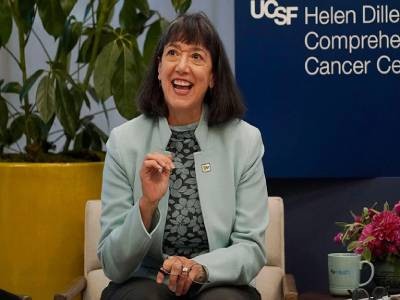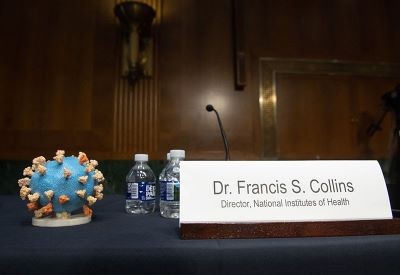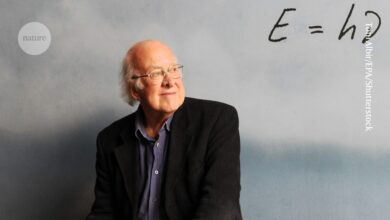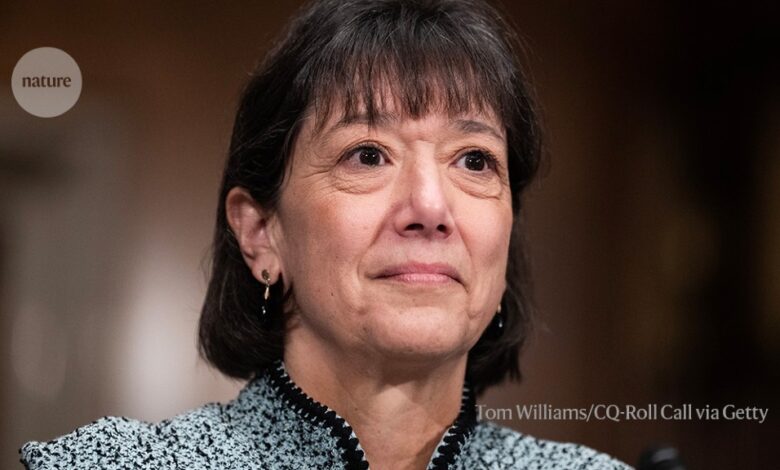
[ad_1]
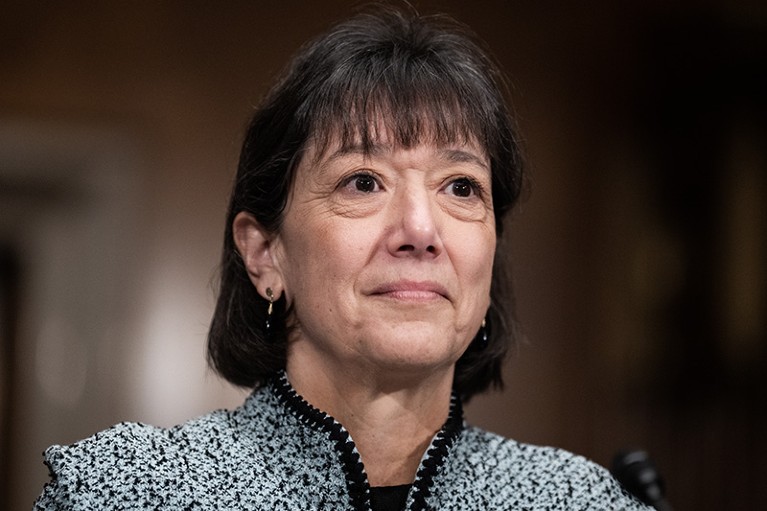
Monica Bertagnolli answered questions for nearly two hours on 18 October about how she would respond to various scenarios as head of the US National Institutes of Health.Credit: Tom Williams/CQ-Roll Call via Getty
Washington DC
Monica Bertagnolli, US President Joe Biden’s pick to lead the National Institutes of Health (NIH), hinted today during a long-awaited Senate committee hearing at what her priorities will be for the biomedical agency if she is confirmed. At the top of the list is improving the diversity of clinical-trial participants, enhancing collaboration among the NIH’s 27 institutes and centres and restoring public trust in scientists and the agency.
Before the COVID-19 pandemic, the NIH typically saw yearly budget increases and enjoyed bipartisan support for its mission. The hearing made clear how politically charged the agency’s research portfolio has become since then, underscoring challenges that Bertagnolli might face as its director. The sprawling institution is the largest public funder of biomedical research in the world, with an annual budget of about US$47 billion.
“If confirmed, I will work every day to enhance health, lengthen life and reduce illness for all Americans,” Bertagnolli said at the 18 October Senate committee session.
Drug-pricing showdown
The confirmation hearing comes nearly two years after the NIH’s former director, geneticist Francis Collins, stepped down following more than 12 years in the role. (Lawrence Tabak has been serving as acting director in the interim.)
Biden had nominated Bertagnolli, who is the current head of the US National Cancer Institute (NCI), to lead the NIH in May 2023. But Bernie Sanders, an ‘independent’ senator for Vermont who is not affiliated with any one political party and who chairs the Health, Education, Labor and Pensions Committee responsible for Bertagnolli’s confirmation, delayed holding this hearing until he could secure a promise from the Biden administration to slash US prescription-drug prices. In September, Sanders finally said that he would move ahead with Bertagnolli’s nomination after the administration struck a deal with Regeneron Pharmaceuticals in Tarrytown, New York, to cap the price of a next-generation monoclonal antibody for treating COVID-19.
Bertagnolli is the first female director of the NCI, and if her new position is confirmed, she would be the second permanent female director of the NIH. A cancer surgeon, Bertagnolli was also the first woman to lead the surgical-oncology division at the Dana–Farber Cancer Institute in Boston, Massachusetts.
A loss of unanimous support
At the hearing, although senators across the political spectrum lauded Bertagnolli’s qualifications for the job, many pressed her on hot-button issues. By contrast, when Collins became the NIH director in 2009, he had unanimous support from the US Senate and no confirmation hearing was held.
White House to tap cancer leader Monica Bertagnolli as new NIH director
Things changed for the agency during the COVID-19 pandemic, after some Republican lawmakers made unsubstantiated claims that the NIH’s funding of coronavirus research in China could have played a part in causing the worldwide crisis. Their colleagues in the US House of Representatives have been holding hearings about the origins of the virus that have scrutinized Collins and the former head of the NIH’s infectious-diseases branch, Anthony Fauci.
“The NIH became a lightning rod for partisan debates during the COVID-19 pandemic, and that eroded trust between the NIH and the public,” said Bill Cassidy, a Republican senator for Louisiana, to Bertagnolli at the hearing. “You will be tasked to rebuild the relationship with Congress.”
Expressing confidence in her abilities, the scientific community has rallied behind Bertagnolli: more than 120 non-profit organizations that represent scientists, patients and institutions backed her confirmation in a letter sent to Senate leaders on 17 October.
Four lessons from the pandemic to reboot the NIH
Beyond COVID-19’s origins, Sanders pushed Bertagnolli to commit to lowering the prices of prescription medicines in the United States, and several Republican senators questioned whether the NIH should invest taxpayer dollars in research on fetal tissue or transgender health care.
Many senators asked Bertagnolli to pledge to advance research on a wide array of topics, including menopause, paediatric cancer, antibiotic resistance and screen time for children. “The hearing was almost entirely a laundry list of personal concerns based on each senator’s constituency, family members or interest groups,” says Stuart Buck, who is based in Houston, Texas, and who leads the Good Science Project, an organization that advocates improving the funding and practice of science. Instead, Buck wishes the hearing had focused more on Bertagnolli’s plans to address structural issues at the NIH, such as how to recruit early-career scientists and whether the agency encourages enough high-risk, transformational research, rather than incremental research.
The committee will meet again on 25 October to decide whether to advance Bertagnolli’s nomination to a full Senate vote.
Source link

